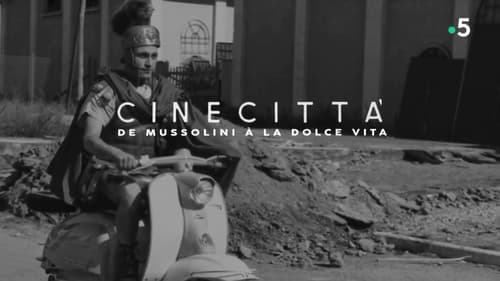
Self (archive footage)
Cinecitta is today known as the center of the Italian film industry. But there is a dark past. The film city was solemnly inaugurated in 1937 by Mussolini. Here, propaganda films would be produced to strengthen the dictator's position.

Director
Simon Bolivar is the true-life story of the leader of the 1817 Venezuelan revolution.
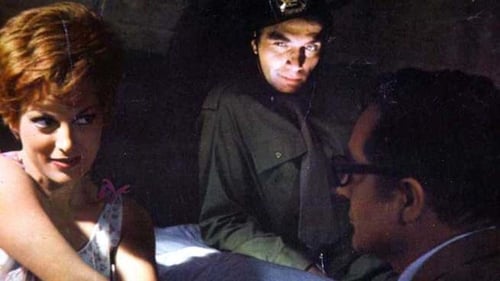
Screenplay
Anita, a free Emilian girl falls in love with Salvatore, a Neapolitan bersagliere. The two would like to get married, but he drowns while bathing in the river. From that moment the woman is unable to love anyone else because, at the most beautiful, the ghost of her fiancé appears to her who, in the end, will be able to be followed in the other world.

Director
Anita, a free Emilian girl falls in love with Salvatore, a Neapolitan bersagliere. The two would like to get married, but he drowns while bathing in the river. From that moment the woman is unable to love anyone else because, at the most beautiful, the ghost of her fiancé appears to her who, in the end, will be able to be followed in the other world.
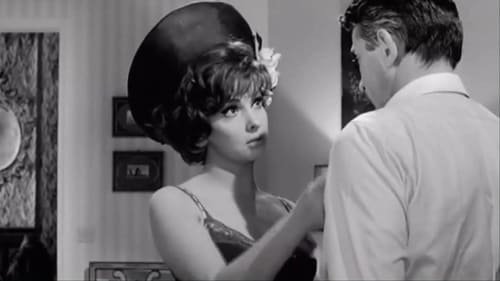
Screenplay
Sandro is a well-known journalist and he is conducting a survey on human selfishness. Every man and every woman he meets turns into a theme for his inquiry. Even his own wife, Titta.

Story
Sandro is a well-known journalist and he is conducting a survey on human selfishness. Every man and every woman he meets turns into a theme for his inquiry. Even his own wife, Titta.

Director
Sandro is a well-known journalist and he is conducting a survey on human selfishness. Every man and every woman he meets turns into a theme for his inquiry. Even his own wife, Titta.

Writer
In late 19th century Sicily, handsome free-spirit Liolà wanders into town, where he encounters an old flame now married to a wealthy landowner.

Director
In late 19th century Sicily, handsome free-spirit Liolà wanders into town, where he encounters an old flame now married to a wealthy landowner.
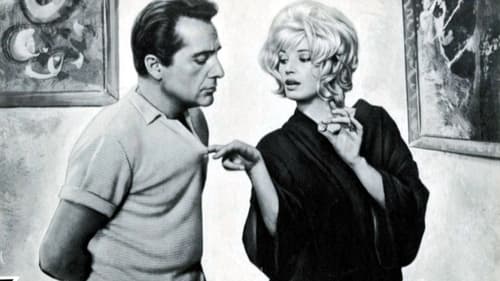
Writer
"Les quatre vérités" aka "The Four Truths" is a movie anthology that consists of four segments, all loosely parodying fables from the 17th-century French poet Jean de la Fontaine. The US cut usually features only 3 segments.

(segment "Le lièvre et le tortue")
"Les quatre vérités" aka "The Four Truths" is a movie anthology that consists of four segments, all loosely parodying fables from the 17th-century French poet Jean de la Fontaine. The US cut usually features only 3 segments.

Director
"Les quatre vérités" aka "The Four Truths" is a movie anthology that consists of four segments, all loosely parodying fables from the 17th-century French poet Jean de la Fontaine. The US cut usually features only 3 segments.

Thanks
Documentary compiled from archives and accompanied by a poet's commentary, shows the sweep of modern Italian history from 1911 to 1961, centering on the conditions leading to Fascism and the post-WWII reaction to the Fascist experience.

Director

Director
Documentary directed by Alessandro Blasetti.
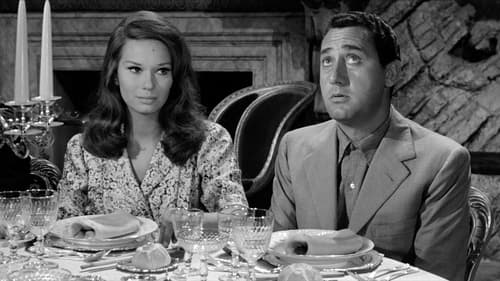
Self (uncredited)
Silvio refuses to fight for the fascists and joins the resistance with Elena. After the war, his vitriolic newspaper articles cause him to be sentenced to imprisonment.

Director
A tour of the nightlife in Rome, Paris, London, Madrid, Vienna, Brussels and more. Episodes presenting famous artists and people performing.

Screenplay
Maria and Paul love them, but they are very young and, moreover, Maria is the daughter of the municipal sweeper while Paul is the lawyer Bonelli, vice mayor and head of the opposition. To complicate the story there is the reconstruction of a hermitage destroyed during the war. Reconstruction would take the view of the Paseroni villa, big industrial and political traffic. Bonelli's lawyer, a great speaker, becomes a mayor for the death of his predecessor and is bought by Paseroni, while rejecting the love of Paul and Mary for social differences and why Paul should stay behind Doddy Paseroni. At this point, Paul and Mary flee to kill, just as Bonelli has to hold a talk on the radio for the inauguration of Paseroni's villa ...

Director
Maria and Paul love them, but they are very young and, moreover, Maria is the daughter of the municipal sweeper while Paul is the lawyer Bonelli, vice mayor and head of the opposition. To complicate the story there is the reconstruction of a hermitage destroyed during the war. Reconstruction would take the view of the Paseroni villa, big industrial and political traffic. Bonelli's lawyer, a great speaker, becomes a mayor for the death of his predecessor and is bought by Paseroni, while rejecting the love of Paul and Mary for social differences and why Paul should stay behind Doddy Paseroni. At this point, Paul and Mary flee to kill, just as Bonelli has to hold a talk on the radio for the inauguration of Paseroni's villa ...
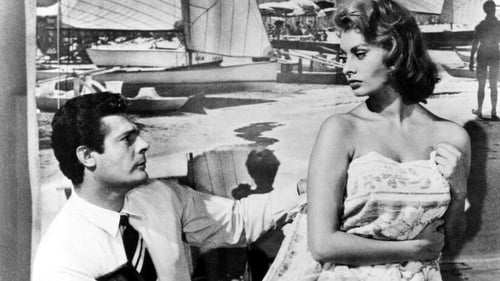
Director
A photographer named Corrado snaps a picture of Antonietta. When it shows up on the front page of a magazine, she wants to take him to court over it.

Director
made for Fiat in 1955
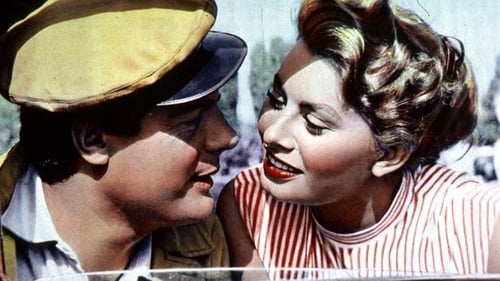
Director
When young and attractive Lina Stroppiani, a thief like the rest of her family, tries to steal the taxi of Paolo, together with two accomplices, she can't possibly know that this will have far reaching consequences.

Screenplay
Nine episodes about life in Italy in the period just before its economic boom.

Director
Nine episodes about life in Italy in the period just before its economic boom.

Screenplay
Just before the Franco-Prussian War of 1870, a party is held in the castle of the Stettin's Counts.

Director
Just before the Franco-Prussian War of 1870, a party is held in the castle of the Stettin's Counts.

Screenplay
A number of different segments taken from 19th century Italian stories.

Director
A number of different segments taken from 19th century Italian stories.
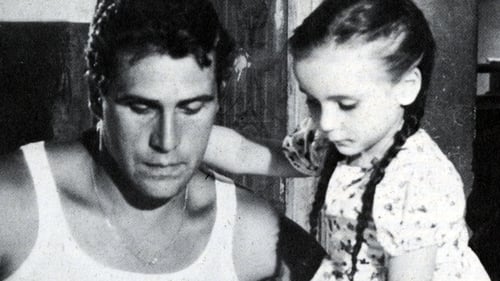
Self
Bellissima is a satire of the film industry, and centers on a mother and daughter after the latter attends an audition.
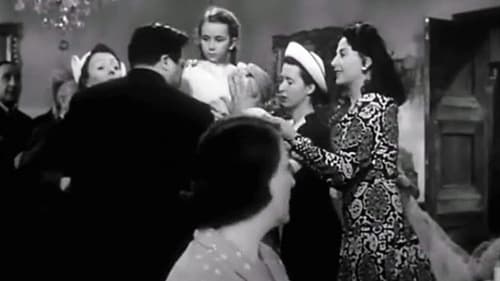
Writer
The daughter of Signor Carloni is about to take her first communion. A problem arises when the dressmaker spends too much time working on the girl's communion frock.

Director
The daughter of Signor Carloni is about to take her first communion. A problem arises when the dressmaker spends too much time working on the girl's communion frock.
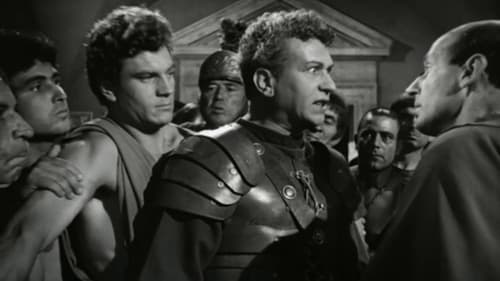
Story
In ancient Rome a love story blossoms between Fabiola, daughter of a senator, and Rhual, a Gallic gladiator. After Fabiola's father is killed, the Romans blame the Christians and the persecution begins. Rhual confesses to being a Christian, is accused of the murder and sentenced to fight to the death in the arena.

Director
In ancient Rome a love story blossoms between Fabiola, daughter of a senator, and Rhual, a Gallic gladiator. After Fabiola's father is killed, the Romans blame the Christians and the persecution begins. Rhual confesses to being a Christian, is accused of the murder and sentenced to fight to the death in the arena.

Director
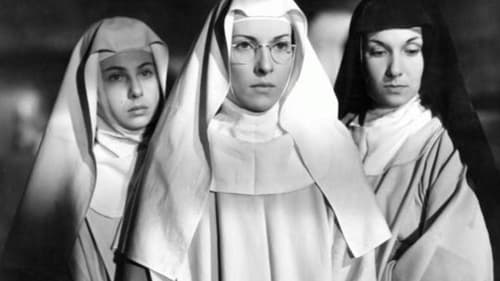
Story
Some Italian partisans want to take refuge in a convent to escape German raids. The nuns are a little perplexed at first but then agree since one of the men is seriously wounded. When the partisans eventually leave, the Germans take a terrible revenge.

Screenplay
Some Italian partisans want to take refuge in a convent to escape German raids. The nuns are a little perplexed at first but then agree since one of the men is seriously wounded. When the partisans eventually leave, the Germans take a terrible revenge.

Director
Some Italian partisans want to take refuge in a convent to escape German raids. The nuns are a little perplexed at first but then agree since one of the men is seriously wounded. When the partisans eventually leave, the Germans take a terrible revenge.
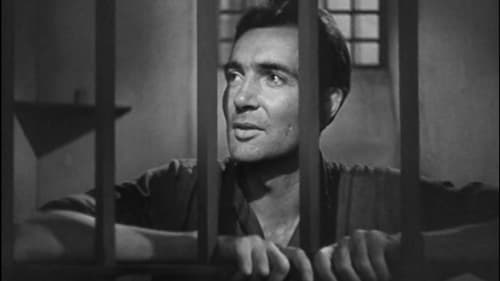
Supervising Technical Director
A man, standing trial for robbery with murder, faces the death penalty. The testimony of an old civil servant may give him a reprieve but not peace of mind.

Screenplay
A host of college girls take different life paths in the Italy of the 1930s.

Director
A host of college girls take different life paths in the Italy of the 1930s.
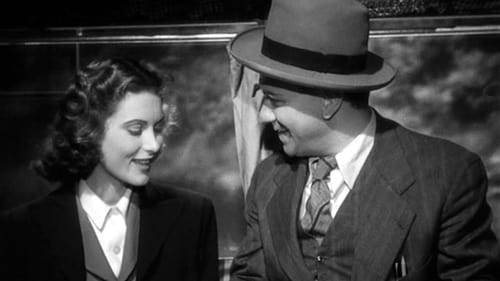
Screenplay
A family man travelling for work, Paolo Bianchi, meets on a train a lonely girl, Maria. He sees her again on a bus and she reveals him that she's in troubles: she's pregnant, her baby's father has left her and she doesn't know how to tell to her parents that she's not married. She asks Paolo to play the role of her husband and he accepts....

Director
A family man travelling for work, Paolo Bianchi, meets on a train a lonely girl, Maria. He sees her again on a bus and she reveals him that she's in troubles: she's pregnant, her baby's father has left her and she doesn't know how to tell to her parents that she's not married. She asks Paolo to play the role of her husband and he accepts....

Screenplay
In Florence, at the time of Lorenzo de Medici, known also as Lorenzo the Magnificent, the aristocrat brothers Chiaramantesi rule with an iron fist the streets of the city. Ruthless and fierce, the two brothers have chosen as their special victim the innocent and harmless Giannetto. Even though determined to not react to the cruel pranks of the brothers, Giannetto is forced to take a stand when Ginevra, a beautiful girl that works in the Chiaramantesi household, is dragged into the game. To defend his honor and protect the girl, Giannetto works out a fiendish plot that will end in blood and madness.

Director
In Florence, at the time of Lorenzo de Medici, known also as Lorenzo the Magnificent, the aristocrat brothers Chiaramantesi rule with an iron fist the streets of the city. Ruthless and fierce, the two brothers have chosen as their special victim the innocent and harmless Giannetto. Even though determined to not react to the cruel pranks of the brothers, Giannetto is forced to take a stand when Ginevra, a beautiful girl that works in the Chiaramantesi household, is dragged into the game. To defend his honor and protect the girl, Giannetto works out a fiendish plot that will end in blood and madness.
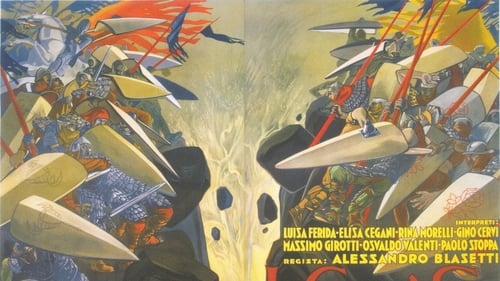
Screenplay
In the kingdom of Kindaor, traitor Sedesmondo kills his brother, the King of Kindaor, and becomes the tyrant of kingdom. He abandons the prince Arminio to beasts in the woods, but lions don't kill him and breed him as one of them.

Director
In the kingdom of Kindaor, traitor Sedesmondo kills his brother, the King of Kindaor, and becomes the tyrant of kingdom. He abandons the prince Arminio to beasts in the woods, but lions don't kill him and breed him as one of them.

Editor
Everything unfolds in Naples seventeenth century, when a mysterious masked swordsman who calls Salvador Rossa becomes champion of the needy and lonely struggle against the cruel tyrant that frightens the country.

Screenplay
Everything unfolds in Naples seventeenth century, when a mysterious masked swordsman who calls Salvador Rossa becomes champion of the needy and lonely struggle against the cruel tyrant that frightens the country.

Director
Everything unfolds in Naples seventeenth century, when a mysterious masked swordsman who calls Salvador Rossa becomes champion of the needy and lonely struggle against the cruel tyrant that frightens the country.

Writer
Called to perform at the Scala, a young baritone begins a transatlantic romance with a famous pianist. The singer, having been skewered by a critic after his last performance in Milan, attempts to find a way to win over the audience and the critics, while wooing his love interest.

Director
Called to perform at the Scala, a young baritone begins a transatlantic romance with a famous pianist. The singer, having been skewered by a critic after his last performance in Milan, attempts to find a way to win over the audience and the critics, while wooing his love interest.

Editor
ETTORE FIERAMOSCA was based on a widely-read literary action epic by Massimo D'Azeglio, published in 1833. Translated to the screen in 1938 by the most important director of the Italian fascist period, Alessandro Blasetti, it was intended to boost current patriotic fervor and pride in the Italian nation, and it contributed to a revival of Italian nationalism.

Screenplay
ETTORE FIERAMOSCA was based on a widely-read literary action epic by Massimo D'Azeglio, published in 1833. Translated to the screen in 1938 by the most important director of the Italian fascist period, Alessandro Blasetti, it was intended to boost current patriotic fervor and pride in the Italian nation, and it contributed to a revival of Italian nationalism.

Director
ETTORE FIERAMOSCA was based on a widely-read literary action epic by Massimo D'Azeglio, published in 1833. Translated to the screen in 1938 by the most important director of the Italian fascist period, Alessandro Blasetti, it was intended to boost current patriotic fervor and pride in the Italian nation, and it contributed to a revival of Italian nationalism.

Director

Director
La Contessa di Parma was the sole directorial contribution by Allesandro Blasetti in 1937. The first of several expensive costume dramas upon which the director established his international reputation, the film stars Elisa Cegani as Marcella, a model in the dress shop owned by enterprising Umberto Melnati. To improve his business, the owner instructs his models to dress up as society ladies and attend all the best parties. And that's how humble little Marcella comes to be mistaken for the popular Duchess of Parma -- and by extension, how our heroine wins the love of football hero Gino Vanni (Antonio Centa). A little wanting in the way of plot or logic, La Constessa di Parma is at least consistently good to look at.

Screenplay

Director
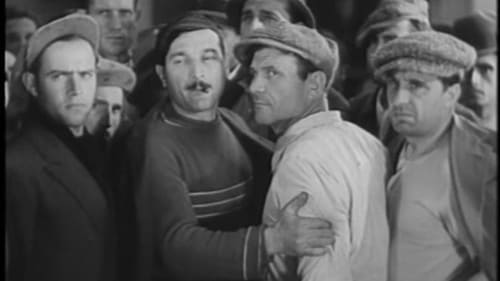
Editor
There were very few commercial feature films made during the Italian fascist era that were as openly propagandistic as this famous (notorious?) dramatic paean to the Blackshirts. The story takes place in a small village in Italy in October of 1922, on the eve of the fascist "March on Rome", in which King Victor Emanuel III was persuaded to consign power to Benito Mussolini. Gianfranco Giachetti is Dr. Cardini, a doctor at the local psychiatric hospital, where a strike has been called by the local socialists. Cardini turns to the fascists to help avert the strike. His son Roberto (Mino Doro) rounds up fascist friends to fight those aligned with the strikers and the town's socialists.

Screenplay
There were very few commercial feature films made during the Italian fascist era that were as openly propagandistic as this famous (notorious?) dramatic paean to the Blackshirts. The story takes place in a small village in Italy in October of 1922, on the eve of the fascist "March on Rome", in which King Victor Emanuel III was persuaded to consign power to Benito Mussolini. Gianfranco Giachetti is Dr. Cardini, a doctor at the local psychiatric hospital, where a strike has been called by the local socialists. Cardini turns to the fascists to help avert the strike. His son Roberto (Mino Doro) rounds up fascist friends to fight those aligned with the strikers and the town's socialists.

Director
There were very few commercial feature films made during the Italian fascist era that were as openly propagandistic as this famous (notorious?) dramatic paean to the Blackshirts. The story takes place in a small village in Italy in October of 1922, on the eve of the fascist "March on Rome", in which King Victor Emanuel III was persuaded to consign power to Benito Mussolini. Gianfranco Giachetti is Dr. Cardini, a doctor at the local psychiatric hospital, where a strike has been called by the local socialists. Cardini turns to the fascists to help avert the strike. His son Roberto (Mino Doro) rounds up fascist friends to fight those aligned with the strikers and the town's socialists.

Director
Carla leads a good life with her father's money. She gets a job in the company but in exchange she will have to live on her salary alone like all her colleagues. Among her colleagues there is also Renato, a young man with whom she falls in love. However, having noticed a certain familiarity, the boy believes her to be the owner's lover and shows up at the family villa where all misunderstandings are cleared up.

Editor
The story is the harried attempt of a Sicilian partisan, as part of the risorgimento, to reach Garibaldi's headquarters in Northern Italy, and to petition the revered revolutionary to rescue part of his besieged land. Along the way, the peasant hero encounters many colorful Italians, differing in class and age, and holding political opinions of every type. There is a key train scene, and the film ends on the battlefield, Italian unification a success, despite brutal losses.

Writer
The story is the harried attempt of a Sicilian partisan, as part of the risorgimento, to reach Garibaldi's headquarters in Northern Italy, and to petition the revered revolutionary to rescue part of his besieged land. Along the way, the peasant hero encounters many colorful Italians, differing in class and age, and holding political opinions of every type. There is a key train scene, and the film ends on the battlefield, Italian unification a success, despite brutal losses.

Director
The story is the harried attempt of a Sicilian partisan, as part of the risorgimento, to reach Garibaldi's headquarters in Northern Italy, and to petition the revered revolutionary to rescue part of his besieged land. Along the way, the peasant hero encounters many colorful Italians, differing in class and age, and holding political opinions of every type. There is a key train scene, and the film ends on the battlefield, Italian unification a success, despite brutal losses.

Director
Based on the 1893 play Der Andere by Paul Lindau.

Director
With a panoramic view of the city with the countryside in the background, the documentary approaches the urban area by framing the basilica, while the path of a monk with the torch seems to drive the camera up to the crypt of St. Francis. A narrator tells the story of the saint, of St Clare and of the orders by them founded. The images then create a sort of stroll in front of the art of Giotto and Cimabue. A procession of monks with the candles are the only human elements that stand out in the representation of the city and its architecture.

Editor
It seems that Zarre (Guido Celano), the man chosen to be the jockey for the Lupa contrada, and fiance' to Fiora (Leda Gloria), becomes enamored of a cafe' chanteuse. Bachicche, the jockey of a rival neighborhood, wants to get even with Zarre for a past offense and enlists the help of the chanteuse, Liliana (Laura Nucci).

Screenplay
It seems that Zarre (Guido Celano), the man chosen to be the jockey for the Lupa contrada, and fiance' to Fiora (Leda Gloria), becomes enamored of a cafe' chanteuse. Bachicche, the jockey of a rival neighborhood, wants to get even with Zarre for a past offense and enlists the help of the chanteuse, Liliana (Laura Nucci).

Director
It seems that Zarre (Guido Celano), the man chosen to be the jockey for the Lupa contrada, and fiance' to Fiora (Leda Gloria), becomes enamored of a cafe' chanteuse. Bachicche, the jockey of a rival neighborhood, wants to get even with Zarre for a past offense and enlists the help of the chanteuse, Liliana (Laura Nucci).

Director
A bankrupt aristocrat tries to keep up appearances while his situation worsens. To top it off the life savings given to him by a beggar to invest has been mistakenly claimed by the aristocrat's altruist society for their annual Feast of the Poor.

Editor
A famous composer, distraught after his lover leaves him, contemplates suicide. He meets a young woman who restores his will to live.

Screenplay
A famous composer, distraught after his lover leaves him, contemplates suicide. He meets a young woman who restores his will to live.

Director
A famous composer, distraught after his lover leaves him, contemplates suicide. He meets a young woman who restores his will to live.

Editor
The Duke Marco visits to his country side estate after many years absence. His farmers wants him to stay and run the place while his lover wants him to sell it. All while a farmers daughter also enters his life.

Screenplay
The Duke Marco visits to his country side estate after many years absence. His farmers wants him to stay and run the place while his lover wants him to sell it. All while a farmers daughter also enters his life.

Director
The Duke Marco visits to his country side estate after many years absence. His farmers wants him to stay and run the place while his lover wants him to sell it. All while a farmers daughter also enters his life.

Director
Depictions of the Emperor Nero and the Great Fire of Rome (64). Anachronisms are used for comedy, such as Nero telephoning the fire brigade.

Editor
Sole is the first film by the great Alessandro Blasetti and bears a complex relationship to the reclamation of the Pontine Marshes, a seminal event in Fascist political history.

Writer
Sole is the first film by the great Alessandro Blasetti and bears a complex relationship to the reclamation of the Pontine Marshes, a seminal event in Fascist political history.

Director
Sole is the first film by the great Alessandro Blasetti and bears a complex relationship to the reclamation of the Pontine Marshes, a seminal event in Fascist political history.
































































